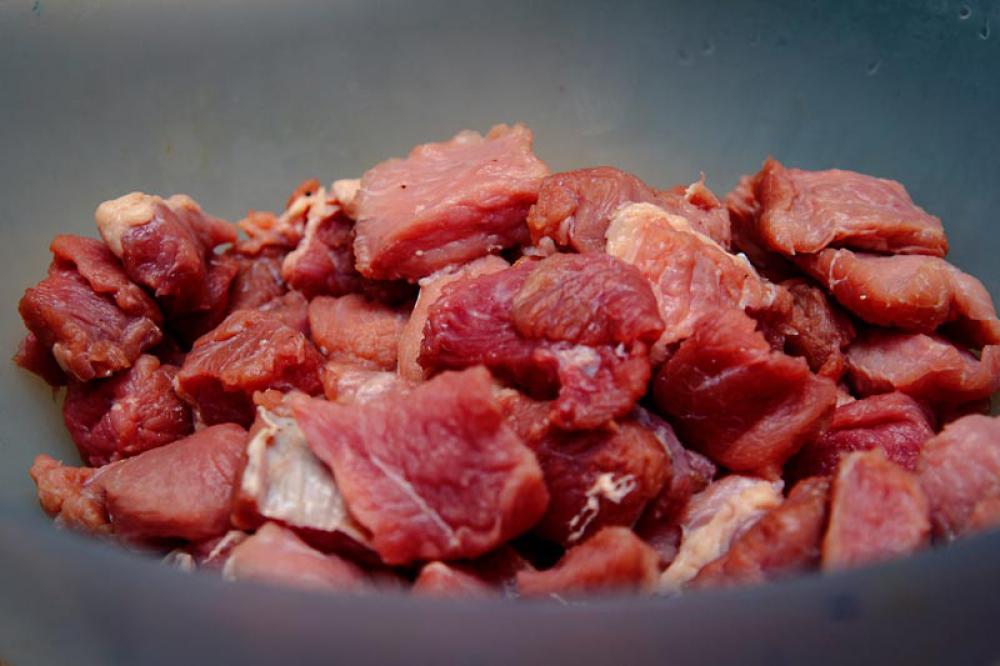Just Earth News | @justearthnews | 21 Oct 2023, 06:26 am Print

Study finds red meat consumption associated with increased type 2 diabetes risk. Photo Courtesy:
People who eat just two servings of red meat per week may have an increased risk of developing type 2 diabetes compared to people who eat fewer servings, and the risk increases with greater consumption, according to a new study led by researchers from Harvard T.H. Chan School of Public Health.
They also found that replacing red meat with healthy plant-based protein sources, such as nuts and legumes, or modest amounts of dairy foods, was associated with reduced risk of type 2 diabetes.
The study was published on Thursday, October 19, in The American Journal of Clinical Nutrition.
“Our findings strongly support dietary guidelines that recommend limiting the consumption of red meat, and this applies to both processed and unprocessed red meat,” said first author Xiao Gu, postdoctoral research fellow in the Department of Nutrition.
While previous studies have found a link between red meat consumption and type 2 diabetes risk, this study, which analyzed a large number of type 2 diabetes cases among participants being followed for an extended period of years, adds a greater level of certainty about the association.
Type 2 diabetes rates are increasing rapidly in the U.S. and worldwide. This is concerning not only because the disease is a serious burden, but it also is a major risk factor for cardiovascular and kidney disease, cancer, and dementia.
For this study, the researchers analyzed health data from 216,695 participants from the Nurses’ Health Study (NHS), NHS II, and Health Professionals Follow-up Study (HPFS).
Diet was assessed with food frequency questionnaires every two to four years, for up to 36 years. During this time, more than 22,000 participants developed type 2 diabetes.
The researchers found that consumption of red meat, including processed and unprocessed red meat, was strongly associated with increased risk of type 2 diabetes.
Participants who ate the most red meat had a 62% higher risk of developing type 2 diabetes compared to those who ate the least.
Every additional daily serving of processed red meat was associated with a 46% greater risk of developing type 2 diabetes and every additional daily serving of unprocessed red meat was associated with a 24% greater risk.
The researchers also estimated the potential effects of substituting one daily serving of red meat for another protein source.
They found that substituting a serving of nuts and legumes was associated with a 30% lower risk of type 2 diabetes, and substituting a serving of dairy products was associated with a 22% lower risk.
“Given our findings and previous work by others, a limit of about one serving per week of red meat would be reasonable for people wishing to optimize their health and wellbeing,” said senior author Walter Willett, professor of epidemiology and nutrition.
In addition to health benefits, swapping red meat for healthy plant protein sources would help reduce greenhouse gas emissions and climate change, and provide other environmental benefits, according to the researchers.
- Alarming projection: Global breast cancer cases could cross 3.5 million by 2050, shows study
- Exam stress to emotional distress: Study reveals the dark side of academic pressure
- Vegetarian diet linked to lower risk of five major cancers, study finds
- Ukraine’s health system under fire: Attacks spike 20% in 2025, WHO warns
- A dog’s loving lick turned deadly — She woke up without her limbs





-1763561110.jpg)
